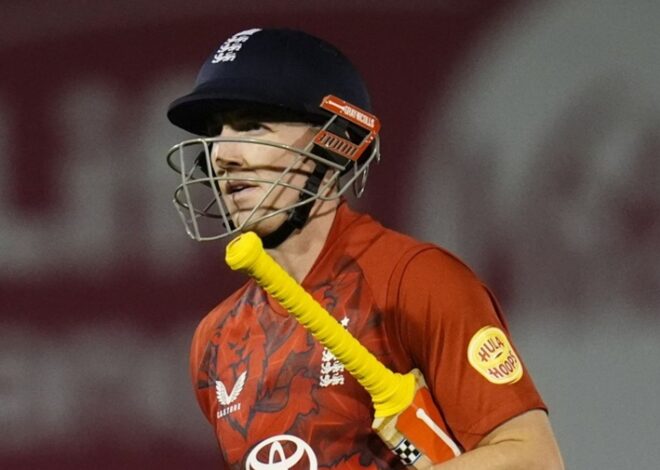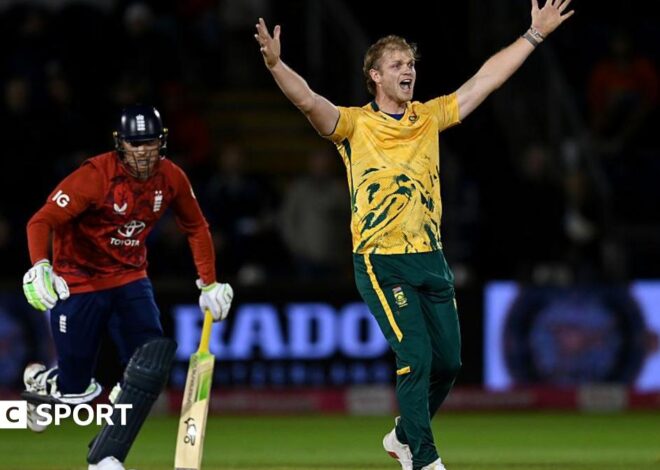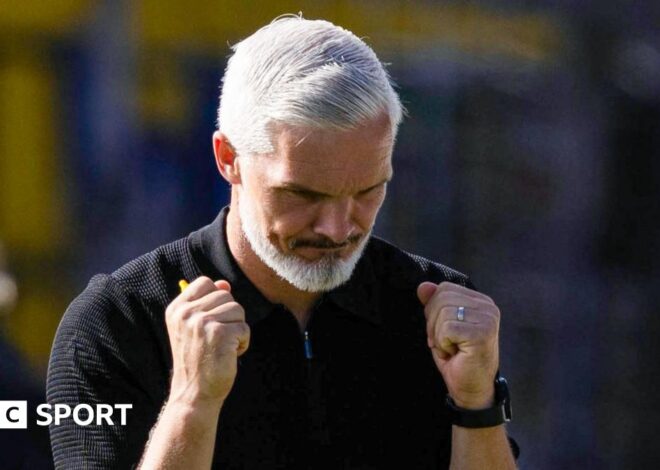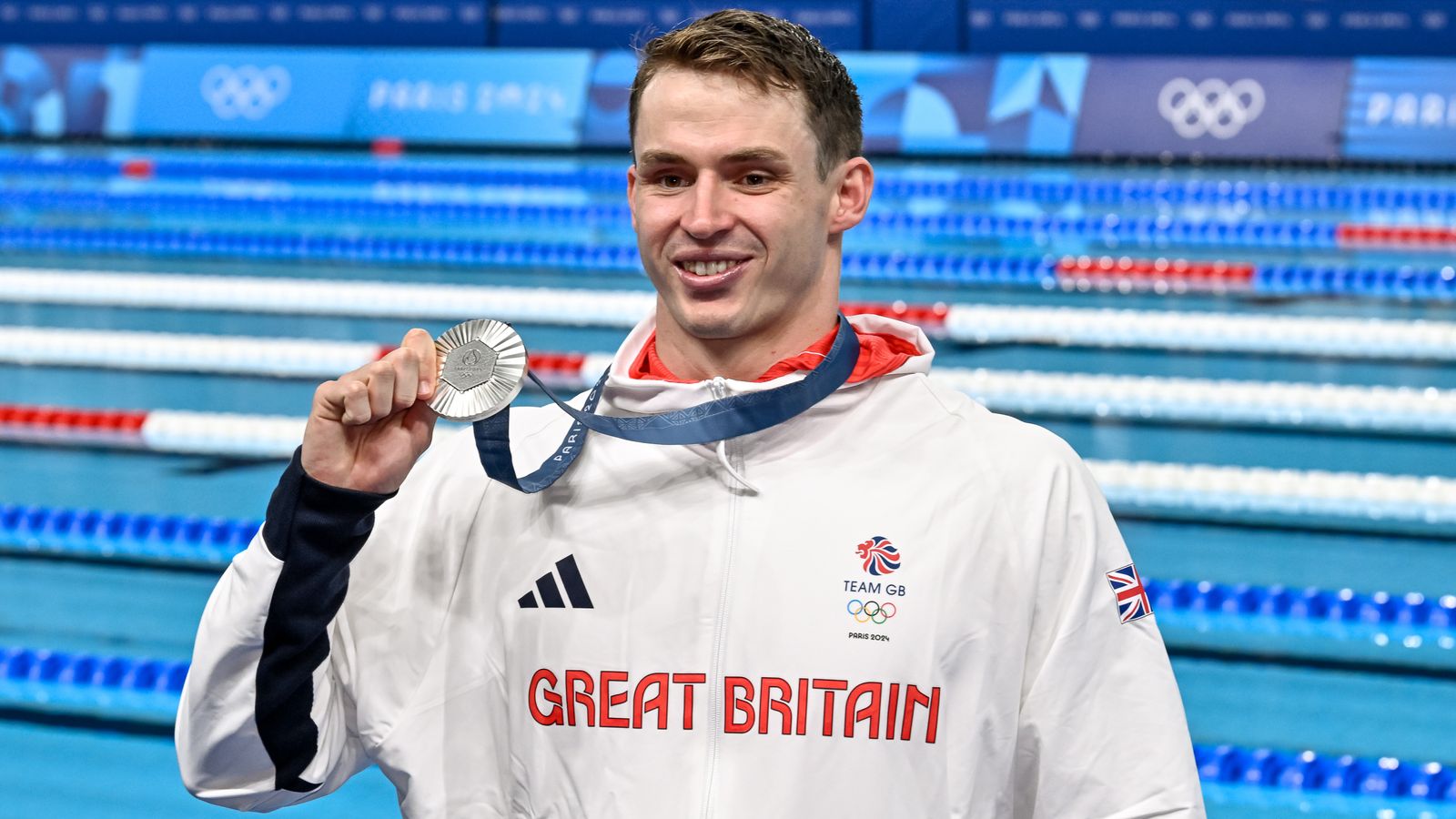
Explained: What are the ‘Enhanced Games’ – and is mainstream sport under threat? | Swimming News

Great Britain’s Ben Proud has announced he has retired from ‘traditional swimming’ to compete in the Enhanced Games
On Wednesday, Team GB Olympic silver medallist Ben Proud announced his retirement from ‘traditional swimming’ in order to compete at the controversial Enhanced Games next May.
But what are they? What are their restrictions? How have anti-doping agencies and governing bodies reacted? And how much of a threat is this event to mainstream athletics?
What are the Enhanced Games?
The Enhanced Games are the brainchild of an Australian entrepreneur called Aron D’Souza. He came up with the idea some years ago but formally put out his intention to actually get an event going in 2023. That event, the Enhanced Games, will take place in Las Vegas from May 21-May 24 of 2026.
The plan at the moment is that it won’t be a massive event like an Olympics or a World Championships. You’re looking at just a few sports.
Swimming is one of them, but short-distance swimming, sprinting and weightlifting, those are the sports that are being mooted as being in the schedule for the Enhanced Games.
D’Souza says the reason he came up with the idea of the Enhanced Games was: firstly, that it should be up to elite, professional athletes. They should be in charge of how they look after their bodies, what they eat, what they put in their bodies. He’s an advocate of that.
He also has had some irritation with the International Olympic Committee (IOC) about how they run themselves and are in control of all sports, as he sees them. He’s looking for an alternative, basically. That’s essentially what the Enhanced Games are.
Are there any restrictions regarding performance-enhancing substances?
Contrary to some reports, it’s not a complete free-for-all when it comes to substances that athletes can use to compete in the Enhanced Games.
When the Enhanced Games were first mooted, a lot of people were thinking athletes would be able to use a lot of substances that are banned under the WADA code – the World Anti-Doping Agency.
Every year or so, they come up with a banned list and it’s very clear. It involves varying degrees of substances, from steroids down to food supplements, etc. But they are banned.
They would be deemed to be having an unnatural influence on the body’s ability to train, to heal, to compete. That’s the reason for WADA having their banned list of drugs and substances.
As far as the Enhanced Games go, they still have to come under the rules and regulations of the state of Nevada in the USA, and also the federal government in the USA as well.
They come under, essentially, FDA rules, the Food and Drug Administration of the United States. So, for example, hard class A drugs like cocaine and heroin are not allowed to be used.
Anything that is illegal under the FDA’s rules cannot be used by athletes wishing to compete in the Enhanced Games.
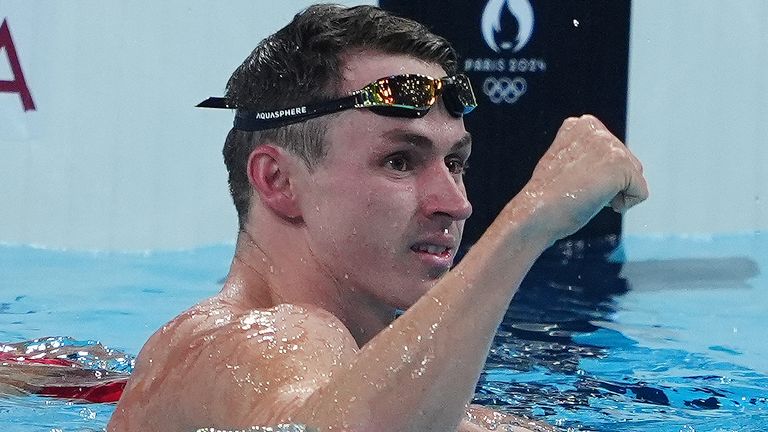
Proud became a world and European champion for Britain, as well as an Olympic silver medallist
I think that is something that has become slightly lost over the last year or so. However, that does not rule out an awful lot of substances that would normally be banned under the WADA code, the banned list that they have.
So, athletes will be able to take some performance-enhancing substances they would not be able to take were they to be competing for national federations in national and international competition that is signed up to the WADA code.
Yes, there are restrictions, but they are much fewer and much less than they are if you are competing at an Olympic Games, FIFA World Cup, world championships of all the varying sports as well.
How have anti-doping agencies and governing bodies reacted to the event?
The best quote I’ve ever heard about the Enhanced Games from somebody who is anti-Enhanced Games has come from the head of the US Anti-Doping Agency, a man called Travis Tygart.
He called it a ‘clown show’. So that gives you some sense.
That’s from somebody in a very, very high position in the leading anti-doping agency in the world. His views are probably echoed with slightly different language by most, if not all, anti-doping agencies around the world.
For example, UK Anti-Doping Agency (UKAD), they will in no way be endorsing what Ben Proud is doing here.
In fact, they will in time, I’m sure, come down with quite a strict rebuttal of his decision to take part in the Enhanced Games.
Ben Proud, as many British athletes from many sports have been, was an advocate of UK Anti-Doping’s Clean Sport Week, so they will be really disappointed in this and any other British athlete that were to join the Enhanced Games.
And then you come to the ultimate arbiter when it comes to anti-doping, which is WADA. All national anti-doping agencies are signatories to WADA.
WADA are already very sceptical about the Enhanced Games. They deem it to be a dangerous idea and a dangerous event to be held when they are trying to make not just elite sport fair, but also safe.
It’s the health and safety of all those who intend to compete, who hope to compete, that is the main reason for these rules under WADA. They will be really disappointed.
The language used towards the Enhanced Games has been very stern.
A UK Sport spokesperson said: “UK Sport condemns everything the Enhanced Games stands for in the strongest possible terms. We believe it risks compromising athlete health and welfare.
“We are engaging with our colleagues at Aquatics GB as a matter of urgency to determine Ben Proud’s suitability to receive public funds.
“It is clear however that any breach of anti-doping rules is contrary to the policies which any athlete must comply with to receive UK Sport funding.”
Of Proud, Jane Rumble, UKAD’s Chief Executive, said: “It is incredibly disappointing that any British athlete would consider competing in an event that flies in the face of the true spirit of sport. Any decision by any athlete to compete in the Enhanced Games risks undermining the values of a sporting landscape that prizes hard work, integrity, pure talent and 100 per cent clean sport.
“It’s a landscape UK Anti-Doping works hard to protect, so it is with deep concern for all clean athletes, and all those who love sport, that the event may go ahead, with any British athlete saying they will take part. It is an undertaking that diminishes, rather than ‘enhances’, all those involved.”
How much of a threat is this event to mainstream sport?
At the moment, in reality, it is not a huge threat to the likes of the Olympic Games and world championships, whether it be in swimming, athletics or all the various other sports as well.
It has to be made clear that if this does go ahead in Las Vegas next year, it is going to be a very small event.
We don’t yet know the idea of how many athletes would be at this event, but we’re not talking tens of thousands like there are at the Olympics. We’re probably talking hundreds at best that may decide to compete in the Enhanced Games. It is small. It is niche.
It is clearly getting a lot of attention because of the title Enhanced Games, the relaxing of the rules compared with those athletes that come under the WADA code, that some performance-enhancing substances may be able to be taken.

Adam Peaty spoke to Sky Sports at the 2024 Paris Olympics condemning the use of performance-enhancing drugs in swimming
That’s given it a degree of notoriety and a niche point in the sports agenda at the moment. So in the short term, it is a threat, especially when you’ve got so many anti-doping agencies and WADA coming down hard against this, but also prominent sportsmen and sportswomen, past and present, who are anti the Enhanced Games.
Some of Ben Proud’s team-mates, including the Olympic champion Adam Peaty, who’s become a very vehement proponent against doping.
He gave a very emotional interview after the Olympics last year in Paris to Sky Sports where he spoke about cheating and performance-enhancing substances in swimming, how it really irritated him and how disappointed he was by it and that he would never go down that route, encouraging everyone he knew not to get involved in that. There’s been a lot of traction against the Enhanced Games.
Clearly, for those athletes that are becoming involved and committed to it, there is a financial incentive. We don’t know the exact figures across the board that have been mooted, but we do know that some financial incentives were given to some of the first people who were committed to the Enhanced Games. You’re talking life-changing sums of money in US dollars.
So there is a financial incentive for people there to go to the Enhanced Games, but how many people can be paid that kind of money? How many people will choose to step away from mainstream sport? And also, if you do, to never, ever have the chance to compete at an Olympic Games or the world championships in whatever sport you take part in.
If you take part in the Enhanced Games, you rule out, as an elite sportsperson, your chance of ever having the ability to try and compete for your country to win an Olympic or world championship medal. You can never stand on a podium with your country’s flag and hear your national anthem.
You will be barred from competing in those if you sign up to the Enhanced Games.
Which athletes have agreed to take part?
The list of athletes who’ve signed up for the Enhanced Games is not exhaustive, in fact it’s quite short. Probably one of the most high-profile names is Ben Proud, because he is a well-known British swimmer, and the biggest name is the former Australian world champion James Magnussen, who has committed to the Enhanced Games.
In terms of some other names that are well known within swimming, because at the moment it is mainly swimmers who seem to be making the transition over to the Enhanced Games, Kristian Gkolomeev of Greece did a private event for the Enhanced Games in February this year, where he unofficially broke the world record for the long-course 50m freestyle.
It is not a world record because it wasn’t at a World Aquatics event, World Championships or Olympic Games, it was at a private event funded by the Enhanced Games, so it does not count.
Gkolomeev is probably the most high-profile name out there because he got a huge financial reward for that event, almost $1m for doing so.
Andriy Govorov, who is a Ukrainian swimmer, is also signed up for the Enhanced Games. He is a serious swimmer with great pedigree behind him in terms of medals at major championships, but other than that the list is relatively sparse as a lot of athletes either have taken heed of the warnings from their national federations, the various national anti-doping agencies and from high-profile people around sport.
Lord Coe, the President of World Athletics, said the Enhanced Games were a “moronic” idea.
So at the moment, even though the Enhanced Games have this event happening in Las Vegas in May next year, the list is pretty small of confirmed athletes.
The hope from the Enhanced Games is that they will have sportsmen and sportswomen from swimming, athletics and weightlifting, but at the moment the list is very short.

